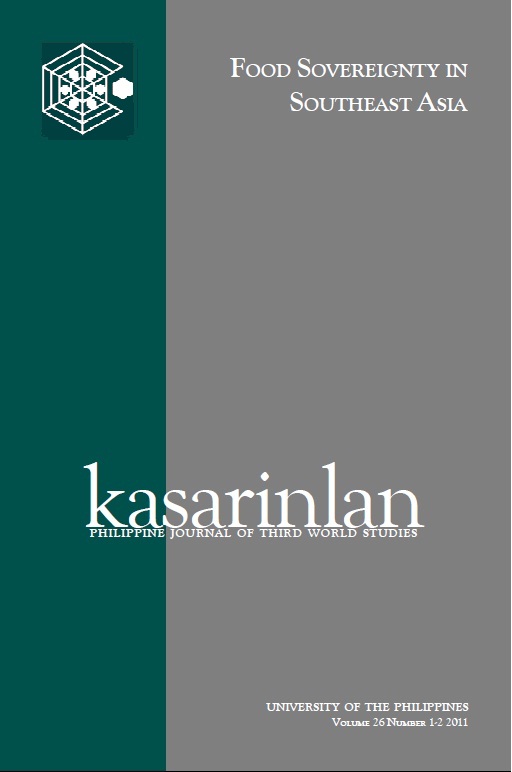Food Crisis and Beyond: Locating Food- Sovereign Alternatives in a Post-Neoliberal Context
Abstract
The second half of the last decade has been profoundly marked by a major food crisis with a global reach, qualified by Holt-Giménez, Patel and Shattuck (2009) as a “silent tsunami,” which has driven about 75 million people to undernourishment and another 125 million people to extreme poverty (Bello 2009b). In light of such a devastating phenomenon, the recent years have witnessed a veritable outpouring of scholarly works on the effects of the food crisis on developing countries, on the critique of the neoliberal food regime, and the emergence of food countermovements confronting neoliberalism. In this review article, I address the global food problem in today’s context from the perspective of “food fovereignty,” arguing that it is essential to break with mainstream perspectives that prioritize the economic aspects of the global food problem and overestimate the role of high politics and policy experts instead of exploring the ways in which genuine grassroots participation could transform the existing neoliberal food system.
Published
2012-12-12
How to Cite
GÜRCAN, Efe Can.
Food Crisis and Beyond: Locating Food- Sovereign Alternatives in a Post-Neoliberal Context.
Kasarinlan: Philippine Journal of Third World Studies, [S.l.], v. 26, n. 1-2, p. 482-496, dec. 2012.
ISSN 2012-080X.
Available at: <https://journals.upd.edu.ph/index.php/kasarinlan/article/view/3517>. Date accessed: 22 sep. 2025.
Section
Feature Review
By submitting a manuscript, the authors agree that the exclusive rights to reproduce and distribute the article have been given to the Third World Studies Center.



